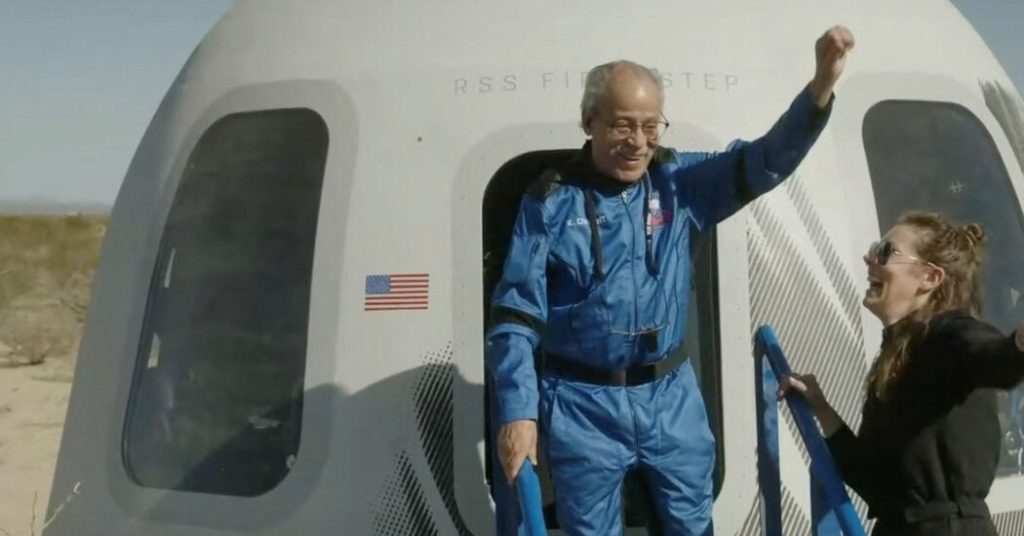More than six decades after Edward Dwight was initially selected to be the first Black astronaut, he finally achieved his dream of reaching space on a Blue Origin spaceflight. At the age of 90, he became the oldest person to ever go to space, surpassing actor William Shatner. Reflecting on his experience, Mr. Dwight expressed that the flight was “life-changing” and admitted that despite initially claiming he didn’t need the flight, he ultimately found it to be a pivotal moment in his life.
In 1961, Edward Dwight was chosen for astronaut training as part of a White House initiative to diversify the space program. Despite the support of President John F. Kennedy and the Black press, Mr. Dwight faced numerous obstacles and was ultimately not selected to be an astronaut. Chuck Yeager, who ran the pilot training program at Edwards Air Force Base, was critical of Mr. Dwight, suggesting that he was chosen for political reasons. Mr. Dwight believed that racism may have played a role in his exclusion from the astronaut program.
Following the assassination of President Kennedy in 1963, support for Edward Dwight’s astronaut aspirations seemed to wane, leading him to leave the Air Force in 1966. He went on to have a successful career as a restaurateur, real estate developer, and acclaimed artist, specializing in sculpting prominent Black-history figures. Despite the setbacks he faced in the space program, Mr. Dwight continued to pursue his passion for space exploration, eventually achieving his goal of going to space aboard the New Shepard rocket.
Mr. Dwight’s journey to space was a culmination of a lifetime of perseverance, determination, and resilience in the face of adversity. His long-awaited flight on the Blue Origin spaceflight marked a historic moment in his life and in the broader context of space exploration. Sharing the experience with five other passengers, including a venture capitalist, a brewery founder, a software engineer, a pilot, and a retired C.P.A., Mr. Dwight emphasized the transformative impact of the flight and encouraged others to embark on a similar journey.
The Blue Origin rocket launched at 9:35 a.m. Central time and returned to Earth within 10 minutes, with the human passengers landing safely shortly after. Despite a minor issue with the deployment of the capsule’s parachutes, the landing proceeded without any significant problems. Upon exiting the capsule, Mr. Dwight expressed his joy and excitement, declaring that “everybody needs to do this.” His long-awaited spaceflight symbolized a belated recognition of his contributions and a moment of personal triumph after years of setbacks and obstacles.
Edward Dwight’s journey from being sidelined in the early days of the space program to finally achieving his dream of going to space serves as a testament to his resilience, determination, and unwavering dedication to his goals. His historic flight on the Blue Origin rocket represented a significant milestone in his life and in the broader context of space exploration. As he reflected on his experience, Mr. Dwight acknowledged the significance of the moment, affirming that reaching space was not just about justice but a culmination of his lifelong pursuit of achieving his dreams.


